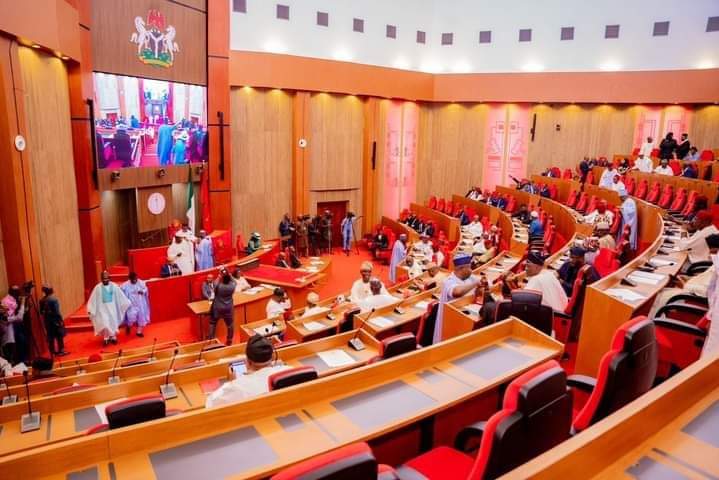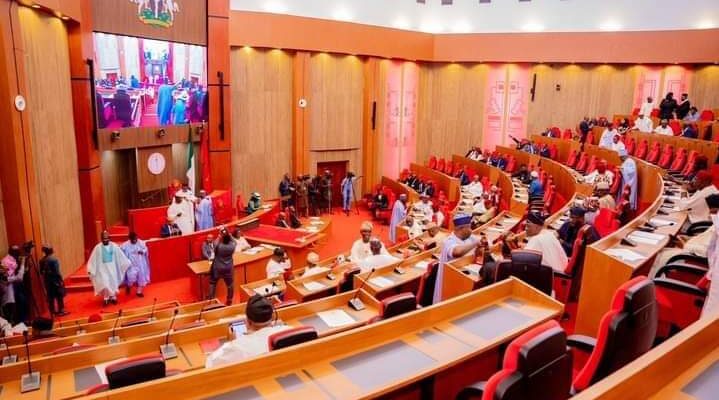
A coalition of legislative lawyers under the Association of Legislative Drafting and Advocacy Practitioners (ALDRAP) has initiated legal steps to compel Nigerian senators to refund a substantial portion of their salaries and allowances, citing poor legislative performance and unconstitutional dual roles in foreign parliaments.
In a letter dated May 26, 2025, ALDRAP served a pre-action notice to the President of the Senate, Godswill Akpabio, accusing all 109 senators of delivering only 12% of their constitutional responsibilities from May 2023 to May 2025 while collecting full remuneration.
The group also demanded that 40 senators, currently serving concurrently in the ECOWAS and Pan-African Parliaments, refund 100% of the salaries and allowances received during the period for violating Section 68 of the 1999 Constitution, which prohibits dual legislative roles.
The legal threat, filed before the Federal Competition and Consumer Protection Tribunal (FCCPT), seeks to apply consumer protection laws to what the lawyers call a “failed legislative service” to Nigerian citizens, who are the consumers of public representation.
According to the notice, ALDRAP is demanding:
A refund of 78% of salaries and allowances by all senators for underperformance.
Full refund by the 40 senators who simultaneously held seats in foreign parliaments.
The suit is backed by an affidavit filed by ALDRAP’s Administrative Secretary, Jesse Amuga, on May 27, 2025. The group accuses the 10th Senate of:
Passing critical bills without public hearings (e.g., National Anthem Act 2024).
Rubber-stamping executive decisions without adequate oversight.
Neglecting private member bills and citizens’ key concerns like security and agriculture.
Waging internal political vendettas while ignoring external accountability.
The group cited a detailed open letter by legislative expert Dr. Tonye Clinton Jaja, and referenced findings from the OrderPaper Parliamentary Monitoring Report, which found that:
Only 5.4% of Senate bills addressed security, and 7.3% agriculture.
More than half of the bills introduced were recycled from previous assemblies.
The 10th Senate passed only 19 bills in its first year and seven in its second year, out of a total of 805 bills introduced.
ALDRAP described the current Senate as “docile” toward the executive but aggressive toward internal dissent, citing the suspension and alleged persecution of Senator Natasha Akpoti-Uduaghan as a key example.
The lawyers argue that failure to recover the funds and disqualify ineligible senators will erode public trust and entrench abuse of legislative power. They have threatened legal action if their demands are not met within seven days of the notice.
The letter was also copied to the President of Nigeria, Chief Justice of Nigeria, leadership of ECOWAS and Pan-African Parliaments, the CBN Governor, and the Accountant-General of the Federation, signaling wide institutional awareness and possible escalation.
If successful, this suit could set a precedent for holding public officeholders accountable through consumer protection mechanisms, marking a new chapter in Nigeria’s legislative and legal landscape.

Comments